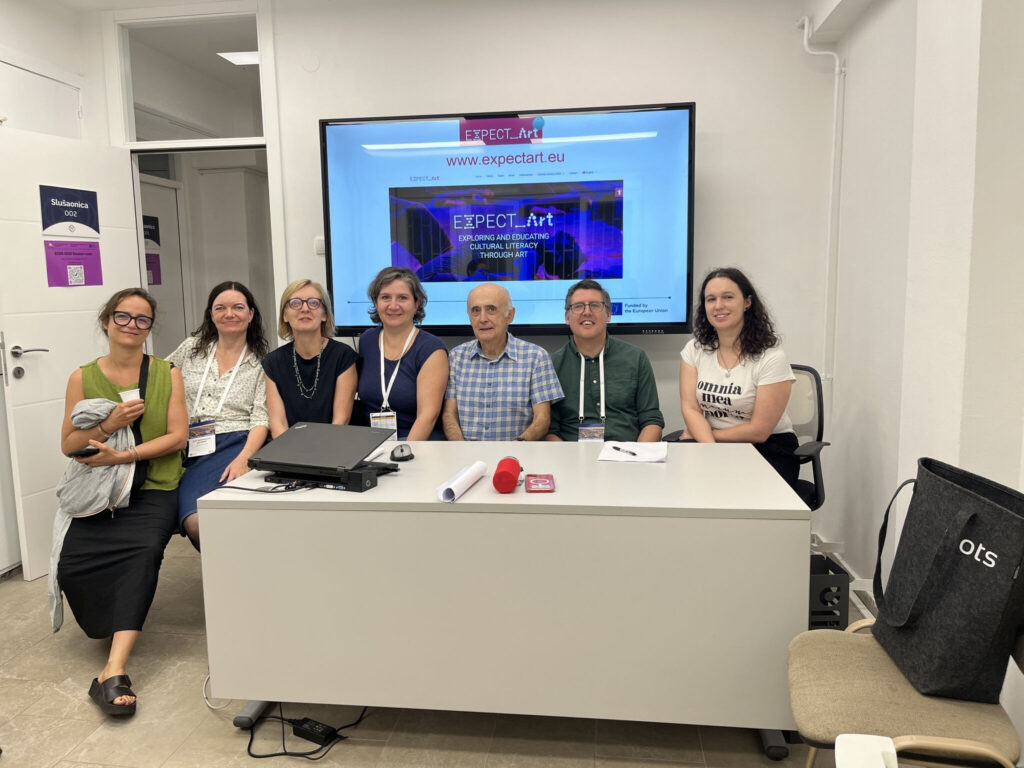Our consortium took part in the 2025 European Conference on Educational Research, hosted by the University of Belgrade. The city’s academic community impressed us – students and teachers as well as local community are leading ongoing protests that highlight their democratic spirit and active participation in shaping society. The conference took part in the second week of September, with more than 2,500 researchers registered and under the motto “Charting the Way Forward: Education, Research, Potentials and Perspectives”.
During the conference, our colleague Gro Hellesdatter Jacobsen hosted a lively panel discussion titled “Decolonizing Curricula through Art Education: First Steps of the EXPECT_Art Project in Affecting and Being Affected by Schools” together with partners from Denmark, Spain, Germany, Hungary and Slovenia. In a packed room, the panel debated and shared experiences around concepts and approaches to fieldwork. The discussion reflected a strong sense of cohesion among partners and introduced interesting perspectives under a shared framework. One of the central topics was how decoloniality informs research methods and its practical applications in the field. Some reflections that emerged included the idea that decolonizing is not exclusively tied to the histories of our countries, but rather an approach applicable to any context where power relations are at play. How do we decolonize without reproducing colonial dynamics? Particularly when researchers determine what is most relevant in a school or a classroom setting. How defining such hierarchies among students, teachers, and school staff risks excluding their cultural perspectives? Rethinking the position of the researcher and ensuring time and space for genuine metacritical collective reflection among researchers may offer a path toward decolonizing our research practices.
The panel also reflected on the work of the cultural partners, noting that some of their artists and art educators belong to minorities or non-hegemonic white cultures and have extensive experience working with diverse marginalized groups—highlighting another way of engaging with decolonial processes. Decoloniality is not a fixed or stable concept; rather, it shifts and resonates differently depending on the contexts in which it operates. Nevertheless, the Consortium agreed that decolonization involves recognizing the plurality of subjectivities present in the classroom, embracing diversity, and resisting homogenization. It seeks to disrupt structures of inequality and discrimination, with particular attention to the power dynamics in adult–child relationships, where coloniality also performs.
We were also part of a symposium on cultural literacy and arts education where we had a vivid discussion alongside our sister projects Dialoguing @arts and Cultural Literacies’ Value in Europe, stregthening ties across shared goals. In this part, we focused on researching cultural literacy with children in a community-based and decolonial perspective.

